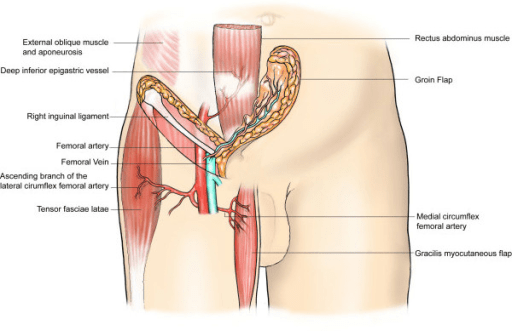Simple Orchiectomy in Apayao
Search and Compare the Best Clinics and Doctors at the Lowest Prices for Simple Orchiectomy in Apayao

Find the best clinics for Simple Orchiectomy in Apayao
No pricing info available
India offers the best prices Worldwide
Price: $ 889
Far North Luzon General Hospital and Training Center, can be found in Luna, Apayao, Philippines and offers its patients Simple Orchiectomy procedures as well as 157 other procedures, across 5 different procedure categories. At present, there is no pricing information for Simple Orchiectomy procedures at Far North Luzon General Hospital and Training Center. The pricing information is quite specialised, so it's only available on request. Currently, there's no information available about the doctors at the Hospital, and Far North Luzon General Hospital and Training Center is not accredited by any recognised accreditations institutions.
- Home
- Philippines
- Apayao
WHY US?
At Medijump, we're making medical easy. You can search, compare, discuss, and book your medical all in one place. We open the door to the best medical providers worldwide, saving you time and energy along the way, and it's all for FREE, no hidden fees, and no price markups guaranteed. So what are you waiting for?

Free

Best Price

Widest Selection

Risk-Free
What you need to know about Simple Orchiectomy in Apayao

Orchiectomy, also known as an orchidectomy, or simply orchi, is a surgical procedure in which one or both testicles are removed. When just one testicle is removed, it is called unilateral simple orchiectomy. When both testicles are removed, the procedure is called bilateral orchiectomy. The surgery is typically performed as a treatment for testicular cancer. Some other cases where simple orchiectomy is performed are:
- Testicular torsion
- In patients with advanced prostate cancer.
- In the management of cases of male breast cancer
- As a last-line treatment for intractable and debilitating chronic orchialgia.
- In severe trauma.
- As part of sex reassignment surgery (SRS) for transgender women.
As the name implies, simple orchiectomy is a simple procedure, taking about just 30 minutes to be performed.
What does a Simple Orchiectomy Procedure Involve?
Every procedure requires the patient to stay in a certain position. For a simple orchiectomy, the patient is made to lie in a flat or in medical terms, a supine position on an operating table. The patient is prepped and draped in the usual standard sterile manner. The penis is taped against the abdomen so that the scrotum is exposed. The nurse will shave a small area to prepare the region for an incision.
It is a simple procedure that takes only 30 minutes to be performed. It is done under local or regional anesthesia or epidural anesthesia. An example of a commonly used local anesthetic (LA) is the lidocaine. Epidural anesthesia is given by injecting a needle into a small area of the back so that anesthetic can be injected into the epidural space.
After the anesthetic has been administered, the surgeon makes an incision in the midpoint of the scrotum and cuts through the underlying tissue, going through the skin, subcutaneous tissue, dartos layer, and the tunica vaginalis.
The surgeon removes the testicles, along with all the gubernacular attachments, and parts of the spermatic cord through the incision. All the bleeders are coagulated. The incision is closed with two layers of sutures and covered with a surgical dressing.
If the patient desires, a prosthetic testicle can be inserted before the incision is closed to present an aesthetic outward appearance of a pre-surgical scrotum.
How Long Should I Stay in Apayao for a Simple Orchiectomy Procedure?
Simple orchiectomy can be performed as an outpatient procedure. The typical length of time for this procedure is usually about 30 minutes. Nonetheless, you always have the option to stay a little longer at the hospital for your recovery if you choose.
It is also important that you have regular check-ups with your surgeon while you’re still in recovery. In most cases, the doctor will use stitches that dissolve on their own in about 1 to 3 weeks and do not need to be removed.
What's the Recovery Time for Simple Orchiectomy Procedures in Apayao?
The usual recovery time can take about a month. The first two weeks can be especially painful and patients are advised to not engage in vigorous exercise or effort. The Doctor will prescribe pain medications (NSAIDS) to ease your discomfort. It is very advisable that you take 2 weeks off work after the operation to fully help the recovery.
What sort of Aftercare is Required for Simple Orchiectomy Procedures in Apayao?
- After the procedure has been completed, the patient can leave. However, they are advised to rest up, especially on the day of the surgery. It is common to feel giddy after receiving anesthesia, so the patient should not be worried.
- It is advised to drink plenty of fluids, about 24 to 32 ounces above the regular water intake is recommended. Carbonated drinks, tea, coffee, and alcohol do not equate to healthy fluids. These liquids happen to be diuretics, and will, in turn, cause excess urination, leading to dehydration.
- The patient is advised to wear a scrotal support for the first two days after the surgery has been performed.
- Ice or an ice pack can be used to reduce swelling in the scrotum or around the incision.
- Wash the area gently with a mild soap when you are ready to take a bath or shower.
- Keep your incision area dry and covered in gauze for the first few days to prevent any sort of risk of developing an infection.
- Patients should take nonsteroidal anti-inflammatory drugs (NSAIDs) like ibuprofen (Advil, Motrin) for your pain.
- The patient should avoid lifting heavy items for some period of time (at least two weeks) after the surgery.
- The patient can apply creams or ointments according to the doctor’s instructions.
- It is advised that the patient abstains from straining during bowel movements.
- The patient can return to their regular diet as long as they keep their water intake in check. However, a high-fiber diet may be helpful to make stools softer, which, in turn, will require less strain when you are going to the toilet.
- After the procedure, the area may be sore once the anesthesia starts to wear off, over the course of which, the patient will experience some pain and discomfort. There may even be burning when urinating.
- The patient might witness blood in their urine. Do not be alarmed, this will improve in one to three days.
- According to the doctor’s advice, the patient should abstain from sexual activity for at least one week to let the area heal.
What's the Success Rate of Simple Orchiectomy Procedures in Apayao?
Simple orchiectomy has a high success rate where most patients leave the operating room happy with the procedure.
Following bilateral simple orchiectomy, there can be depletion in androgen levels, a relative increase in estrogen levels, metabolic changes, and other numerous consequences, including:
- Immediate loss of fertility
- Hot flushes
- Decreased libido
- Erectile dysfunction
- Gynecomastia
- Osteoporosis
- Anemia and fatigue
- Changes in mood and cognition
- Pain or redness around the incision
- pus or bleeding from the incision
- Fever over 100°F (37.8°C)
- Inability to urinate
- Hematoma, which is blood in the scrotum and usually looks like a large purple spot
- Loss of feeling around your scrotum
Are there Alternatives to Simple Orchiectomy Procedures in Apayao?
Alternatives to a simple orchiectomy are observation and certain drugs, like LHRH analogs, anti-androgens, steroid anti-androgens, estrogens. Other more advanced hormonal therapy regimens and experimental chemotherapy have been reserved for later stages of cancers.
Whilst the information presented here has been accurately sourced and verified by a medical professional for its accuracy, it is still advised to consult with your doctor before pursuing a medical treatment at one of the listed medical providers
No Time?
Tell us what you're looking for and we'll reachout to the top clinics all at once
Enquire Now

Popular Procedures in Apayao
Prices Start From $95

Prices Start From $2,473

Prices Start From $1,795

Recommended Medical Centers in Apayao for Simple Orchiectomy

- Interpreter services
- Translation service
- Religious facilities
- Medical records transfer
- Medical travel insurance
- Health insurance coordination
- TV in the room
- Safe in the room
- Phone in the room
- Private rooms for patients available

- Interpreter services
- Translation service
- Religious facilities
- Medical records transfer
- Medical travel insurance
- Health insurance coordination
- TV in the room
- Safe in the room
- Phone in the room
- Private rooms for patients available

- Interpreter services
- Translation service
- Religious facilities
- Medical records transfer
- Medical travel insurance
- Health insurance coordination
- TV in the room
- Safe in the room
- Phone in the room
- Private rooms for patients available

- Interpreter services
- Translation service
- Religious facilities
- Medical records transfer
- Medical travel insurance
- Health insurance coordination
- TV in the room
- Safe in the room
- Phone in the room
- Private rooms for patients available

- Interpreter services
- Translation service
- Religious facilities
- Medical records transfer
- Medical travel insurance
- Health insurance coordination
- TV in the room
- Safe in the room
- Phone in the room
- Private rooms for patients available

- Interpreter services
- Translation service
- Religious facilities
- Medical records transfer
- Medical travel insurance
- Health insurance coordination
- TV in the room
- Safe in the room
- Phone in the room
- Private rooms for patients available

- Interpreter services
- Translation service
- Religious facilities
- Medical records transfer
- Medical travel insurance
- Health insurance coordination
- TV in the room
- Safe in the room
- Phone in the room
- Private rooms for patients available

- Interpreter services
- Translation service
- Religious facilities
- Medical records transfer
- Medical travel insurance
- Health insurance coordination
- TV in the room
- Safe in the room
- Phone in the room
- Private rooms for patients available

- Interpreter services
- Translation service
- Religious facilities
- Medical records transfer
- Medical travel insurance
- Health insurance coordination
- TV in the room
- Safe in the room
- Phone in the room
- Private rooms for patients available

- Interpreter services
- Translation service
- Religious facilities
- Medical records transfer
- Medical travel insurance
- Health insurance coordination
- TV in the room
- Safe in the room
- Phone in the room
- Private rooms for patients available
Simple Orchiectomy in and around Apayao
Popular Searches
- Plastic Surgery in Thailand
- Dental Implants in Thailand
- Hair Transplant in Thailand
- Breast Augmentation Thailand
- Gastric Sleeve in Thailand
- Gender Reassignment Surgery in Thailand
- Laser Hair Removal in Bangkok
- Botox in Bangkok
- Dermatology in Bangkok
- Breast Augmentation in Bangkok
- Coolsculpting in Bangkok
- Veneers in Turkey
- Hair Transplant in Turkey
- Rhinoplasty in Turkey
- Stem Cell Therapy in Mexico
- Rhinoplasty in Mexico
- Liposuction in Mexico
- Coolsculpting in Tijuana
- Rhinoplasty in Korea
- Scar Removal in Korea
- Gastric Sleeve in Turkey
- Bone Marrow Transplant in India
- Invisalign in Malaysia
- Plastic Surgery in the Dominican Republic
- Tummy Tuck in the Dominican Republic
- Plastic and Cosmetic Surgery in Poland
- Rhinoplasty in Poland
- Hair Implant in Poland
- Dental Implants in Poland
- IVF in Turkey